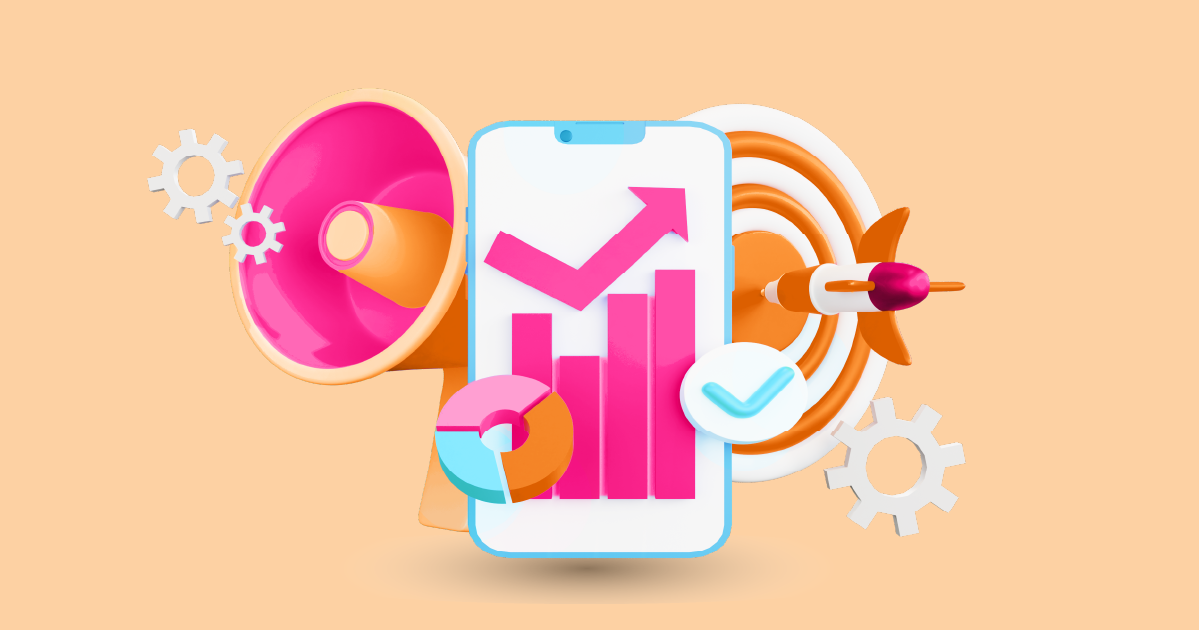In today’s fast-paced digital landscape, businesses thrive on their online presence. Social media platforms have become the cornerstone of brand visibility and engagement. To stay ahead in this competitive environment, it’s crucial to have a robust social media analytics strategy in place. In this article, we will explore the ins and outs of social media analytics, guiding you through the process of creating an effective strategy that enhances your online presence and boosts your brand’s success.
Understanding the Basics: What is Social Media Analytics?
Social media analytics involves the collection, analysis, and interpretation of data from social media platforms. It provides valuable insights into audience behavior, content performance, and overall social media ROI. By leveraging these insights, businesses can make informed decisions, optimize content, and enhance their marketing efforts.
Importance of Social Analytics
Social media analytics is not just a buzzword; it’s necessary for businesses aiming to succeed in the digital sphere. Here’s why it’s crucial:
1. Data-Driven Decision Making
Social media analytics empowers businesses to make data-driven decisions. By analyzing user interactions and engagement patterns, you can tailor your content to meet your audience’s preferences effectively.
2. Enhanced Audience Understanding
Understanding your audience is key to creating engaging content. Social media analytics provides detailed demographic data, helping you identify your target audience’s preferences, behaviors, and interests.
3. Competitive Advantage
By analyzing your competitors’ social media strategies, you can identify gaps and opportunities in the market. This competitive intelligence enables you to refine your approach and stay ahead in the game.
Building an Effective Social Media Analytics Strategy
Now that we understand the significance of social media analytics, let’s delve into the steps to create a winning strategy:
1. Set Clear Goals and Objectives
Define your social media goals – whether it’s increasing brand awareness, driving website traffic, or boosting sales. Clear objectives provide direction and help measure your success.
2. Choose the Right Metrics
Identify key metrics aligned with your goals. Metrics like engagement rate, reach, clicks, and conversion rate are vital indicators of your social media performance.
3. Select Suitable Tools
Utilize social media analytics tools like Google Analytics, Facebook Insights, or Hootsuite Analytics. These tools offer in-depth insights and automate the data collection process.
4. Regularly Monitor and Analyze Data
Consistently monitor your social media data. Analyze trends, track user engagement, and assess the impact of your campaigns. Regular analysis helps in adapting your strategy based on real-time feedback.
5. Implement Changes and Optimize
Based on your analysis, implement the necessary changes to your content strategy. Optimize posting times, content formats, and platforms to maximize audience engagement and reach.
6. Measure ROI
Evaluate the return on investment (ROI) of your social media campaigns. Assess the revenue generated against the costs incurred. This analysis aids in allocating budgets effectively.
Case Studies with Record-Breaking Results
1. Nike’s #Breaking2 Campaign
Nike’s ambitious #Breaking2 campaign aimed to break the two-hour marathon barrier. By leveraging social media analytics, Nike was able to create a global conversation. They tracked real-time engagement, optimized their content for different platforms, and used insights to keep the momentum going. The campaign generated over 13 million mentions across social platforms, resulting in a significant boost in brand visibility and sales. Nike’s success was a testament to the power of a well-executed social media analytics strategy.
2. Coca-Cola’s “Share a Coke” Campaign
Coca-Cola’s “Share a Coke” campaign personalized bottles with popular names, encouraging customers to share their experiences on social media. By analyzing customer interactions and monitoring the campaign’s reach, Coca-Cola tailored its marketing efforts, resulting in a 7% increase in sales in the U.S. during the first year. This record-breaking campaign demonstrated how understanding and responding to social media data can lead to exceptional business outcomes.
Influencer Insights
Gary Vaynerchuk (@garyvee):
“Without proper analytics, your social media strategy is just a guessing game. Data is the key to understanding your audience and delivering content that matters.”
Neil Patel (@neilpatel):
“Your social media efforts are only as good as the data you analyze. The right metrics can tell you what works and what doesn’t, allowing you to focus your energy on what drives results.”
Mari Smith (@MariSmith):
“In today’s crowded digital space, social media analytics isn’t just an option; it’s a necessity. It’s the difference between blindly throwing darts and hitting the bullseye with your content.”
Conclusion
In conclusion, mastering social media analytics is indispensable for any business aiming to thrive in the digital realm. By setting clear goals, choosing the right metrics, utilizing appropriate tools, and continuous analysis, businesses can create a robust social media analytics strategy. Remember, the key lies in adapting and evolving your approach based on the insights gathered, ensuring your brand remains relevant and engaging in the ever-changing world of social media.
Ready to supercharge your social media strategy? Request a demo from AIM Technologies today and revolutionize your online presence!
FAQs
Q1: What are the essential social media metrics to track?
- A1: Essential social media metrics include engagement rate, reach, clicks, conversion rate, and follower growth.
Q2: How often should I analyze my social media data?
- A2: Regular analysis is crucial. Aim for weekly or monthly reviews to stay updated with your social media performance.
Q3: Can social media analytics help in improving customer satisfaction?
- A3: Yes, social media analytics can provide insights into customer feedback and sentiment, allowing businesses to enhance their services and products accordingly.
Q4: Which social media platforms should my business focus on?
- A4: Focus on platforms where your target audience is most active. Conduct market research to identify the platforms preferred by your audience.
Q5: Is it necessary to invest in paid social media analytics tools?
- A5: While there are free analytics tools available, investing in paid tools can provide more advanced features and in-depth insights, making it worthwhile for businesses with extensive social media strategies.





